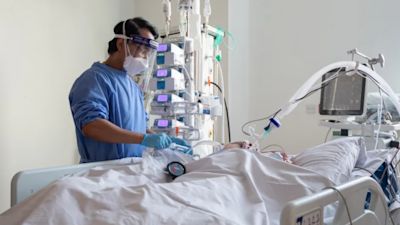Scientists led by Newcastle University discover gene that could protect against severe Covid

A team led by scientists at Newcastle University say they've found first evidence of a genetic link explaining why some people who catch Covid-19 don’t become sick.
They've found a gene called HLA-DRB1*04:01 that is found three times as often in people who are asymptomatic (ie don't have any symptoms of Covid)
It suggests that people with this gene have some level of protection from severe Covid.
The study compared asymptomatic people to patients from the same community who developed severe Covid but had no underlying illnesses.
It's thought more people in the North and West of Europe are likely to have this gene - and are therefore more likely to remain asymptomatic, but still transmit the disease
How did the study work?
The study used samples from 49 patients with severe Covid who had been hospitalised with respiratory failure, samples from an asymptomatic group of 69 hospital workers who had tested positive through routine blood antibody testing, and a control group from another study.
The study used next generation sequencing machines to study the different versions of the genes.
The study was limited to samples from North East England during the first lockdown, but scientists say they'll need to do more studies from different parts of the population.
The study was a collaboration between:
Newcastle University
Newcastle Hospitals NHS Foundation Trust
Northumbria Healthcare NHS Foundation Trust
James Cook University Hospital
North Tees and Hartlepool Hospitals NHS Foundation Trust.